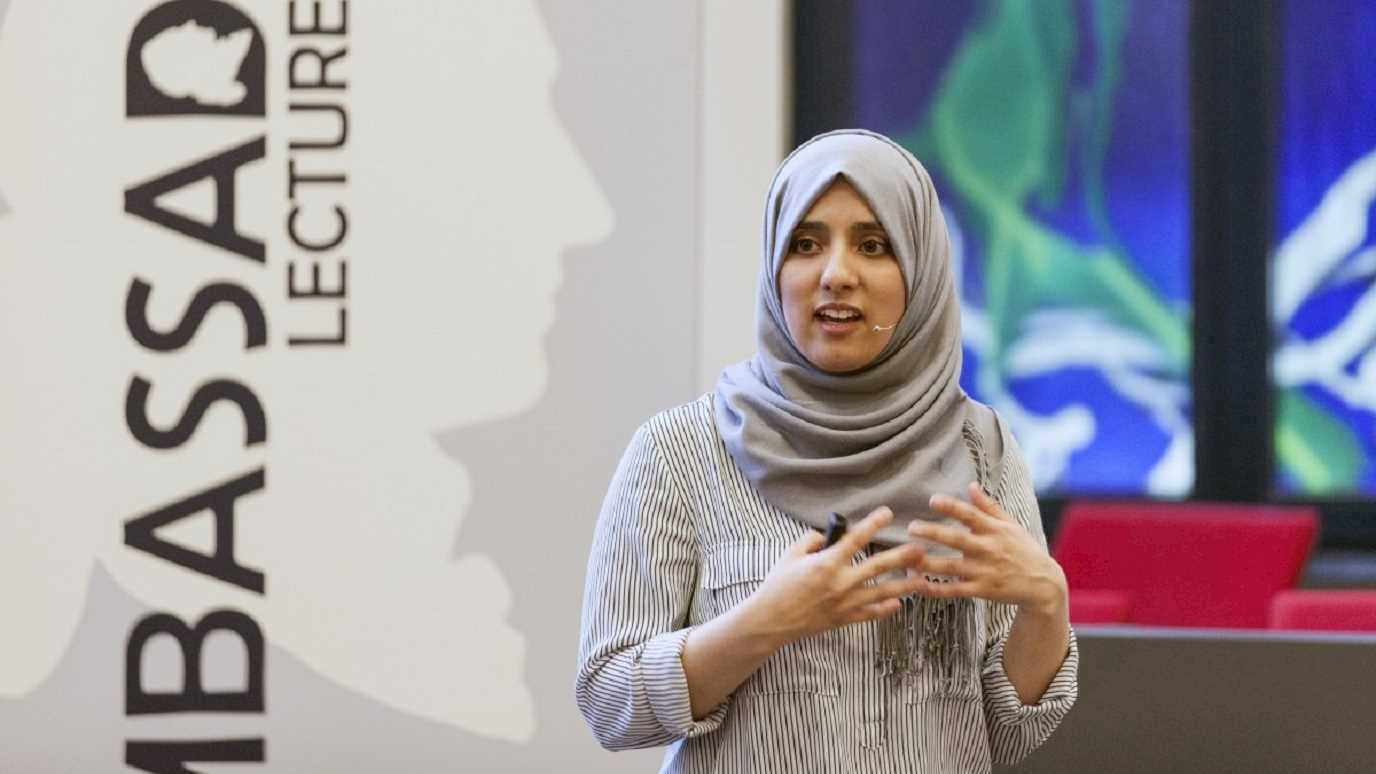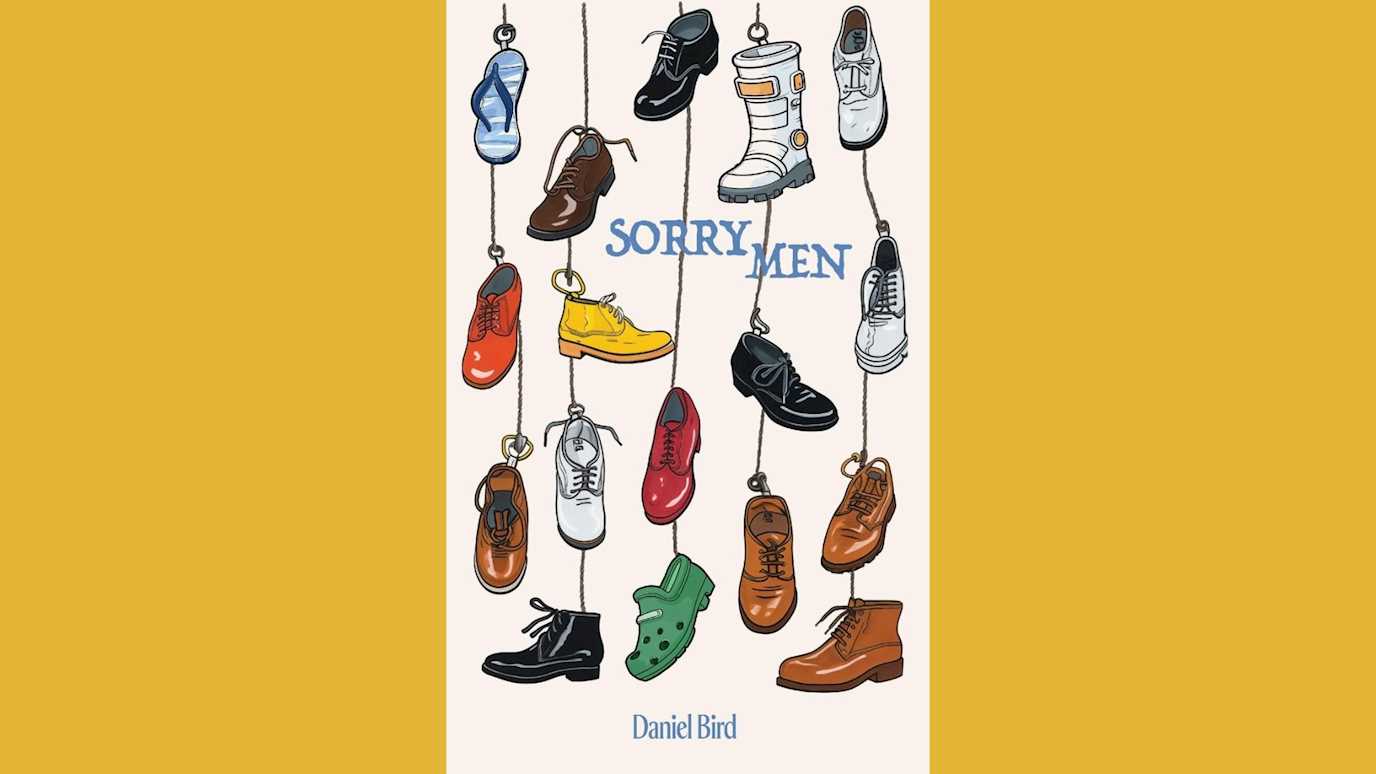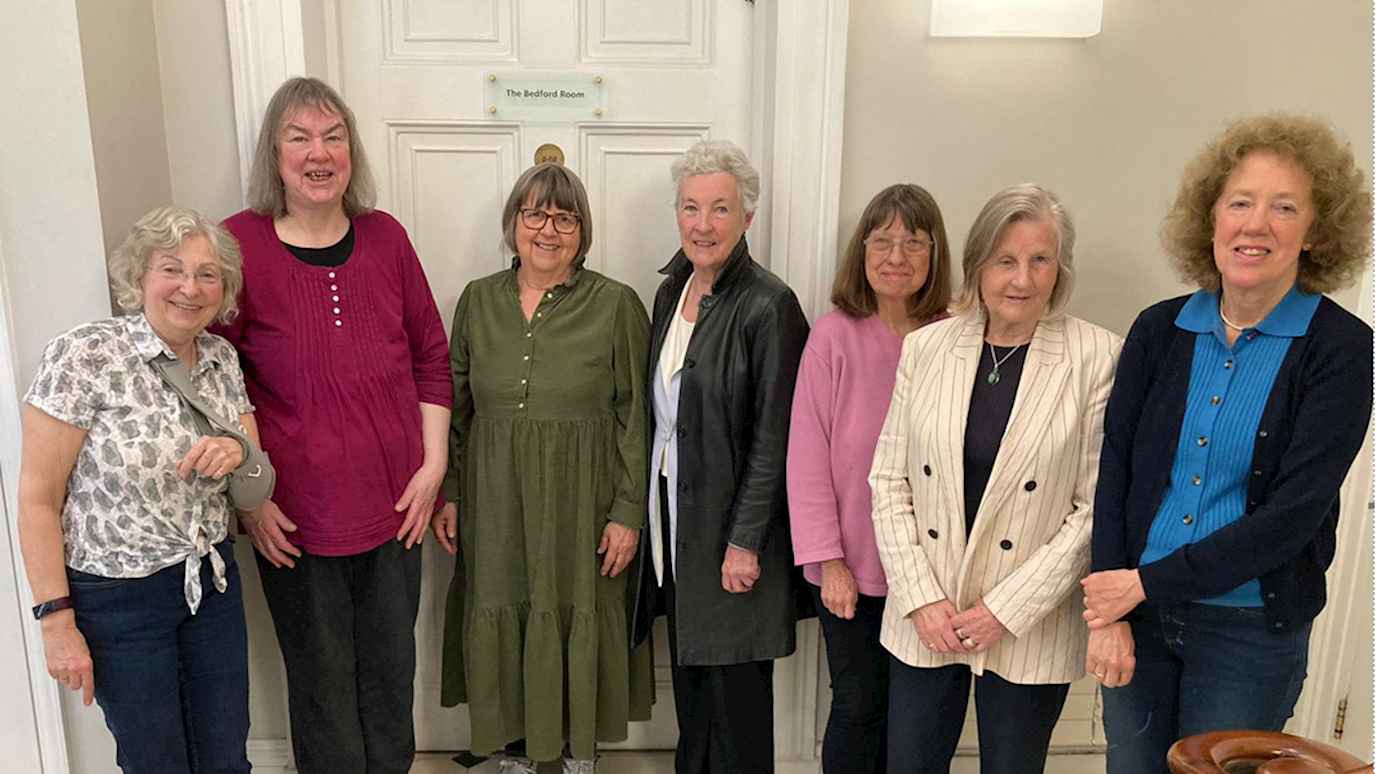As the co-founder of social activism platform the Omnis Institute, alumna Dr Aziza Khabbush is helping to give a global platform for local leaders around the world. She talks to writer and alumna Jessica Jonzen about challenging the status quo.

In November 2018 Royal Holloway alumna, Dr Aziza Khabbush, spoke at the TED X Maastricht event where she asked the audience: “how many of you know leaders who look like me?” It was a challenging but pertinent question.
The eldest of four children of Libyan immigrants, Aziza had grown up full of self-belief. She was a natural leader, she said, a would-be Prime Minister. And then, when she was 10-years-old “9/11 happened… so I was dealing with puberty and prejudice at the same time.” The self-assured child became a self-doubting teenager, who could no longer envisage herself as a leader because she couldn’t see any who looked like her. “You can’t be what you can’t see, after all,” she told the audience.
Happily, that changed in 2009 when she earned a place at Royal Holloway to read Biochemistry, where Aziza entered “the most extroverted period of my life,” she says.
“For me, my time at Royal Holloway was the time I fully established my personality. It was when I started to self-actualise and I think it was because I met people where we clicked straight away. The people I met in Freshers’ Week I’m still best friends with now. My time at Royal Holloway was really fun and it really helped me a lot – it was very good for my self-esteem.”
It was during her second year at Royal Holloway in 2010 that the Arab Spring took place. Concerned for her friends and relatives in Libya, Aziza was galvanised to take action, and endeavoured to contribute to the rebuilding process. She started fundraising with the #IamTawfik organisation, run by friends in memory of Tawfik Bensaud, the Libyan activist killed in Benghazi. “He was just 18-years-old, so in his memory they decided to continue his legacy and one of the things was providing for displaced people across the country during Ramadaan,” says Aziza. “It was putting his legacy into action – I helped with the fundraising aspect. It’s much easier to mobilise funding here than in Libya. I tried to help in whichever way I could.”
Aziza also joined Royal Holloway’s Islamic Society Committee in her second year as a charity officer, which took part in a national university fundraising competition to raise as much money as possible for children and orphans in the UK and internationally. “I’m quite competitive by nature and I wanted to win! We did win Rag society of the Year, though,” Aziza says. “That was a really tough week because I had a lot of deadlines and I had a lot of pressure to perform for this charity – I remember breaking down halfway through and saying ‘I can’t do this!’. It was my first venture into social good – working for the community and doing your best for it.” Aziza even dressed up as Tigger to collect money around the campud: “it’s really funny how people react – teenagers and people in their twenties all act like children when they see Tigger! It’s a fantastic fundraising strategy,” Aziza laughs.

Aziza went on to complete her Masters in Biological Sciences Research at Royal Holloway before studying for her PhD at UCL. She worked at UCL’s Great Ormond Street Institute of Child Health in London alongside nutritional company Vitaflo International, and doctors at Great Ormond Street Hospital and the National Hospital for Neurology and Neurosurgery, to develop a new treatment against drug-resistant epilepsy in children and adults. The treatment is still being researched but the hope is that it will be available to patients on the NHS in future.
It was during her PhD that Aziza met Alaa Murabit and Chritina Myers, who were both studying at LSE. The idea for the Omnis Institute grew from conversations between the three women about their experiences, areas of expertise and desire to make a difference. “One of the things the three of us have all experienced is discrimination as women, and as minorities,” says Aziza of herself and her co-founders.
“It’s a universal issue for young people and women especially and that issue becomes more pronounced when you are minorities – whether that’s based on your ethnicity or religion or your sexuality or a disability,” says Aziza. They saw that giving a platform, training and encouragement to local leaders was key to creating change to a global scale. They chose the name ‘Omnis’ as it means ‘all’ in Latin.
Omnis provides a platform for local leaders, in particular women and youth leaders, by offering leadership training and mentoring opportunities to those with an interest in international peace and security, human rights and sustainable development.
With a focus on four main areas of expertise – education, health, migration and security – Omnis puts gender equality at the very heart of its mission. Omnis has successfully implemented its first Leadership in Action programme in Columbia with the support of UniLever Columbia to train local leaders there and to recognise them as central agents for peace in the country where, in 2018, 158 social leaders were killed.

Omnis has also launched the Omnis Fund for women’s health, displacement and policy, as well as a mentorship programme; conducted global research on cyberbullying and launched a research project to promote social, technical and scientific solutions for the manufacturing of assistive devices via sustainable 3D printing processes for people with disabilities in Colombia.
Since the UN’s Sustainable Development Goals (SDGs) came in to force in 2016, Omnis has also worked to implement them. The goals, which aim to end all forms of poverty, go hand-in-hand with the founders’ range of expertise. In short, in co-founding Omnis, Aziza has become exactly the leader she needed to see when she was growing up.
What are her hopes for the Omnis Institute for the future? “Ideally, we’d like to reach more young people more locally and really support them in their push forward but we would like also to create that bridge between the local leaders on the ground and higher-level stake holders,” says Aziza. “It’s still a work in progress and I think it will take quite a long time to get there but we’re trying to make the most of the connections and experiences that we have, and we’re doing our best for local leaders. It’s impossible to do all on our own but we do want to make significant contribution to social change, whether that’s here in the UK or globally.” When you consider that Aziza is still just 27-years-old, there’s no doubt she’ll achieve her goals and more besides.
Find out more at omnisinstitute.com
























